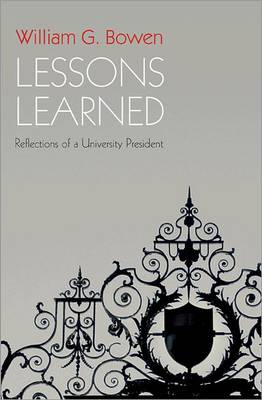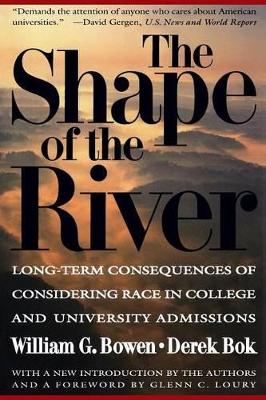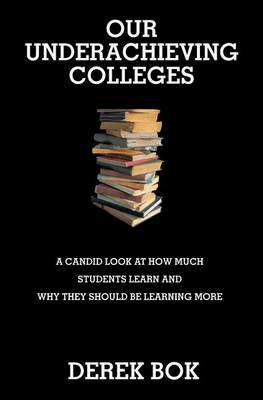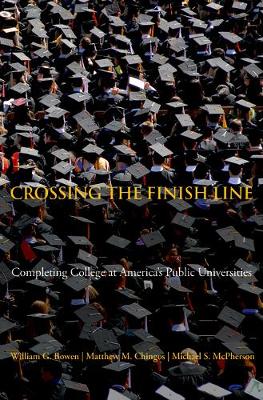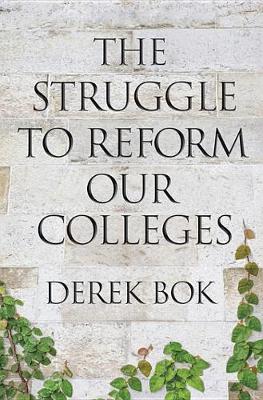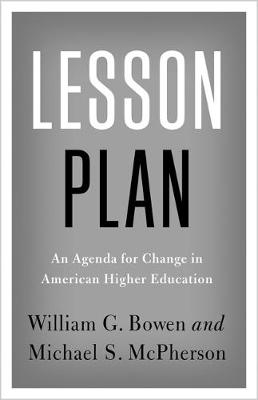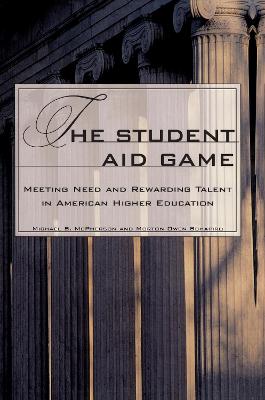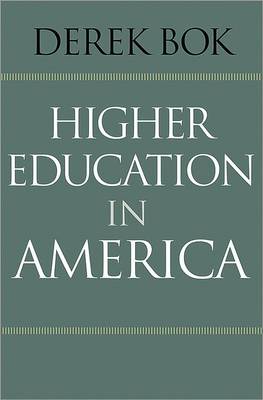The William G. Bowen
2 primary works • 10 total works
Book 54
Drawing on more than four decades of experience, Bowen demonstrates how his greatest lessons often arose from the missteps he made along the way, and how, when it comes to university governance, there are important general principles but often no single right answer. Full of compelling stories, insights, and practical wisdom, Lessons Learned frames the questions that leaders of higher education will continue to confront at a complex moment in history.
Book 118
The authors show that athletic programs raise even more difficult questions of educational policy for small private colleges and highly selective universities than they do for big-time scholarship-granting schools. They discover that today's athletes, more so than their predecessors, enter college less academically well-prepared and with different goals and values than their classmates - differences that lead to different lives. They reveal than gender equity efforts have wrought large, sometimes unanticipated changes, and they show that the alumni appetite for winning teams is not - as schools often assume - insatiable. If a culprit emerges, it is the unquestioned spread of a changed athletic culture through the emulation of highly publicised teams by low-profile sports, of men's programs by women's, and of athletic powerhouses by small colleges. The authors celebrate the benefits of collegiate sports, while identifying the subtle ways in which athletic intensification can pull even prestigious institutions from their missions.
By examining how athletes and other graduates view The Game of Life - and how colleges shape society's view of what its rules should be - the authors go far beyond sports. They tell us about higher education today: the ways in which colleges set policies, reinforce or neglect their core mission, and send signals about what matters.
Instead, they spend most of their time discussing what courses to require, although the lasting impact of college will almost certainly depend much more on how the courses are taught. In his final chapter, Bok describes the changes that faculties and academic leaders can make to help students accomplish more. Without ignoring the contributions that America's colleges have made, Bok delivers a powerful critique - one that educators will ignore at their peril.
Crossing the Finish Line
by William G Bowen, Matthew M Chingos, and Michael S. McPherson
Noting the strong performance of transfer students and the effects of financial constraints on student retention, the authors call for improved transfer and financial aid policies, and suggest ways of improving the sorting processes that match students to institutions. An outstanding combination of evidence and analysis, "Crossing the Finish Line" should be read by everyone who cares about the nation's higher education system.
In the last part of the book, Bok identifies a number of initiatives that could improve the performance of colleges and universities. The final chapter examines the process of change itself and describes the strategy best calculated to quicken the pace of reform and enable colleges to meet the challenges that confront them.
But these problems could be greatly reduced by making significant changes, including targeting federal and state funding more efficiently; allocating less money for "merit aid" and more to match financial need; creating a respected "teaching corps" that would include nontenure faculty; improving basic courses in fields such as math by combining adaptive learning and face-to-face teaching; strengthening leadership; and encouraging more risk taking. It won't be easy for faculty, administrators, trustees, and legislators to make such sweeping changes, but only by doing so will they make it possible for our colleges and universities to meet the nation's demands tomorrow and into the future.
The authors examine how student aid fits into college budgets, how aid and pricing decisions are shaped by government higher education policies, and how competition has radically reshaped the way colleges think about the strategic role of student aid. Of particular interest is the issue of merit aid. McPherson and Schapiro consider the attractions and pitfalls of merit aid from the viewpoint of students, institutions, and society. "The Student Aid Game" concludes with an examination of policy options for both government and individual institutions. McPherson and Schapiro argue that the federal government needs to keep its attention focused on providing access to college for needy students, while colleges themselves need to constrain their search for strategic advantage by sticking to aid and admission policies they are willing to articulate and defend publicly.
Is everything in a university for sale if the price is right? In this book, one of America's leading educators cautions that the answer is all too often "yes." Taking the first comprehensive look at the growing commercialization of our academic institutions, Derek Bok probes the efforts on campus to profit financially not only from athletics but increasingly, from education and research as well. He shows how such ventures are undermining core academic values and what universities can do to limit the damage.
Commercialization has many causes, but it could never have grown to its present state had it not been for the recent, rapid growth of money-making opportunities in a more technologically complex, knowledge-based economy. A brave new world has now emerged in which university presidents, enterprising professors, and even administrative staff can all find seductive opportunities to turn specialized knowledge into profit.
Bok argues that universities, faced with these temptations, are jeopardizing their fundamental mission in their eagerness to make money by agreeing to more and more compromises with basic academic values. He discusses the dangers posed by increased secrecy in corporate-funded research, for-profit Internet companies funded by venture capitalists, industry-subsidized educational programs for physicians, conflicts of interest in research on human subjects, and other questionable activities.
While entrepreneurial universities may occasionally succeed in the short term, reasons Bok, only those institutions that vigorously uphold academic values, even at the cost of a few lucrative ventures, will win public trust and retain the respect of faculty and students. Candid, evenhanded, and eminently readable, Universities in the Marketplace will be widely debated by all those concerned with the future of higher education in America and beyond.
Others are more recent, such as the rise of for-profit institutions and massive open online courses (MOOCs). Additional topics include the quality of undergraduate education, the stagnating levels of college graduation, the problems of university governance, the strengths and weaknesses of graduate and professional education, the environment for research, and the benefits and drawbacks of the pervasive competition among American colleges and universities. Offering a rare survey and evaluation of American higher education as a whole, this book provides a solid basis for a fresh public discussion about what the system is doing right, what it needs to do better, and how the next quarter century could be made a period of progress rather than decline.
